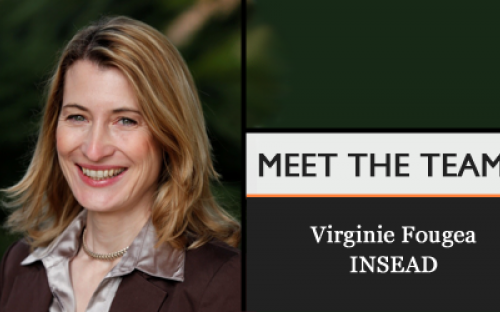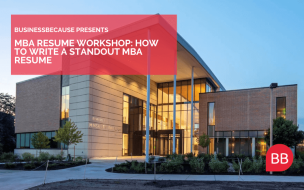INSEAD is currently ranked as the #1 non-US business school by publications including Bloomsberg BusinessWeek, QS, and Forbes.
INSEAD admits two classes per year, each comprising nearly 500 students and representing over 80 nationalities. Around 300 participants start on the Europe campus in Fontainebleau, and around 200 participants start on the Asia campus in Singapore.
What kind of questions should applicants be prepared for at the interview stages?
We don’t provide interviewers with template questions, so they tend to vary. Applicants should be prepared to comment on their career to date and talk about their career progression so far. We also want to know about their plans for after INSEAD – their goals and ambitions – so we can decide whether they’re realistic or suitable for the candidate.
Our interviewers are trying to find leadership potential, as well as to deduce whether the fit of the school is right for them. At INSEAD, we have alumni interviewing our candidates. This aspect of the admissions process is unique to us, and it’s invaluable as the interviewer is then able to assess the candidate as if they were a classmate.
It is important for us to work out whether the candidate needs an MBA, and in particular an INSEAD MBA – they need to be really motivated to join us, rather than having applied to multiple schools and taken no time to consider whether the spirit of the school is right for them.
Another important dimension is that the best students are able to contribute both inside and outside the classroom, and to engage in student life. They might be talented at sport, or interested in MBA club activities, but they must also be able to keep up with the intensity of the MBA programme at the same time.
Are there any interview questions that you think elicit particularly revealing responses from a candidate?
Although the questions are very broad, those which allow us to really understand their interpersonal skills are usually the most revealing. Before the interview, it is easy to evaluate the quantitative aspects of a student’s profile – their GMAT score, for example – but in an interview, we concentrate instead on honesty and self-awareness.
Any secret tips for applicants to impress the admissions team?
We always ask candidate to be honest in the interview, and to give genuine descriptions of themselves – although sometimes people become rather too honest and personal! They ought to tell us about their achievements, but also about how they will contribute to a class, again without going too far and becoming over-dominant.
Who is an ideal INSEAD MBA applicant?
There are many different ‘ideals’ – we aren’t looking for a unique profile. Successful candidates may be people with a lot of life experience, with strong professional experience, or even sporting prowess. Most tend to be really strong in at least one area, but it doesn’t matter so much what that area is.
As much as achievements and positive experiences are important, it’s not just about being the best all the time. You need to be self-aware, to be able to recognise your failures and to have worked on them. Unless you know both your strengths and weaknesses you won’t know how to improve.
How much emphasis do you place on the GMAT score and years of work experience?
The GMAT is helpful in that it allows us to understand a candidate’s academic capacity, which is important considering the intensity of a one-year course. But we also take into consideration grades, the university an applicant has graduated from, and of course the amount of work experience, which is probably more important than the GMAT.
However, the essays that applicants submit are crucial: they are a unique opportunity to stand out, and to introduce yourself.
Many people go to business school to switch careers: can you give us some examples of remarkable career changes after the INSEAD MBA?
I could think of quite a few examples!
There was one Korean student worked in electronics and transitioned into working in cosmetics in France. Someone else who had been working at KPMG moved country and went into luxury with Louis Vuitton, and another person who had been in the French military moved into retail.
Keep in mind that there are three different types of career change – you might change your industry sector, location, or function. We call these the three dimensions, and some people might want to move across all three!
Do you think what b-schools are looking for has changed over time?
Generally speaking, the emphasis is becoming increasingly global, and we’re looking for people to suit this change. ‘Global’ means you would be able to graduate and be placed anywhere in the world, in any industry or function, and be able to offer your opinions in whatever meeting room you ended up in!
What is the best time in a career to take a break for a full-time MBA?
It can be very different depending on the career track the person has had. If they’ve worked in an industry where the career progression is a bit slower than in other jobs, they might have had 5, 6 or 7 years work experience before they start their MBA, whereas people with consulting experience, for example, might embark on an MBA much earlier.
Those who were previously lawyers or medical doctors have normally worked for more years than others, and have also done work experience relevant to an MBA.
The best time is really when a person feels that it’s the right time to make a transition, regardless of the type of transition. They might want to reflect on their career so far, change their career, or move up the career ladder, but timing is a personal consideration.
More about students, alumni and programmes at INSEAD here
RECAPTHA :
97
2c
e0
2c







